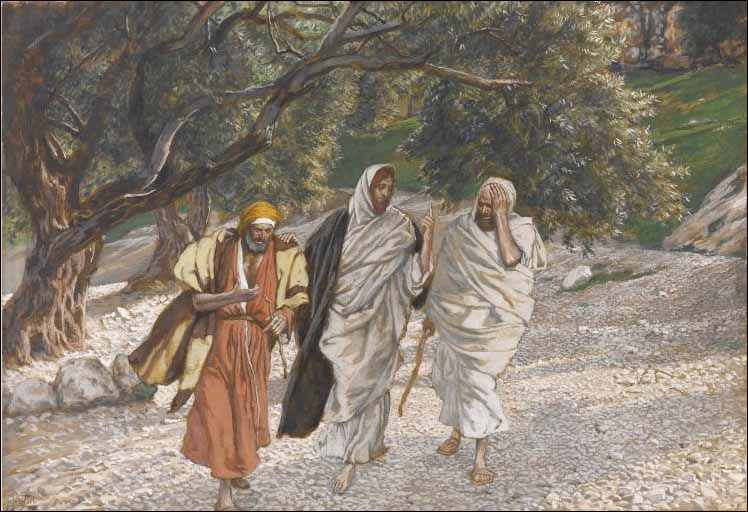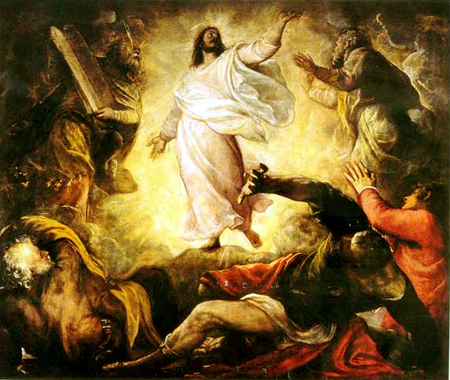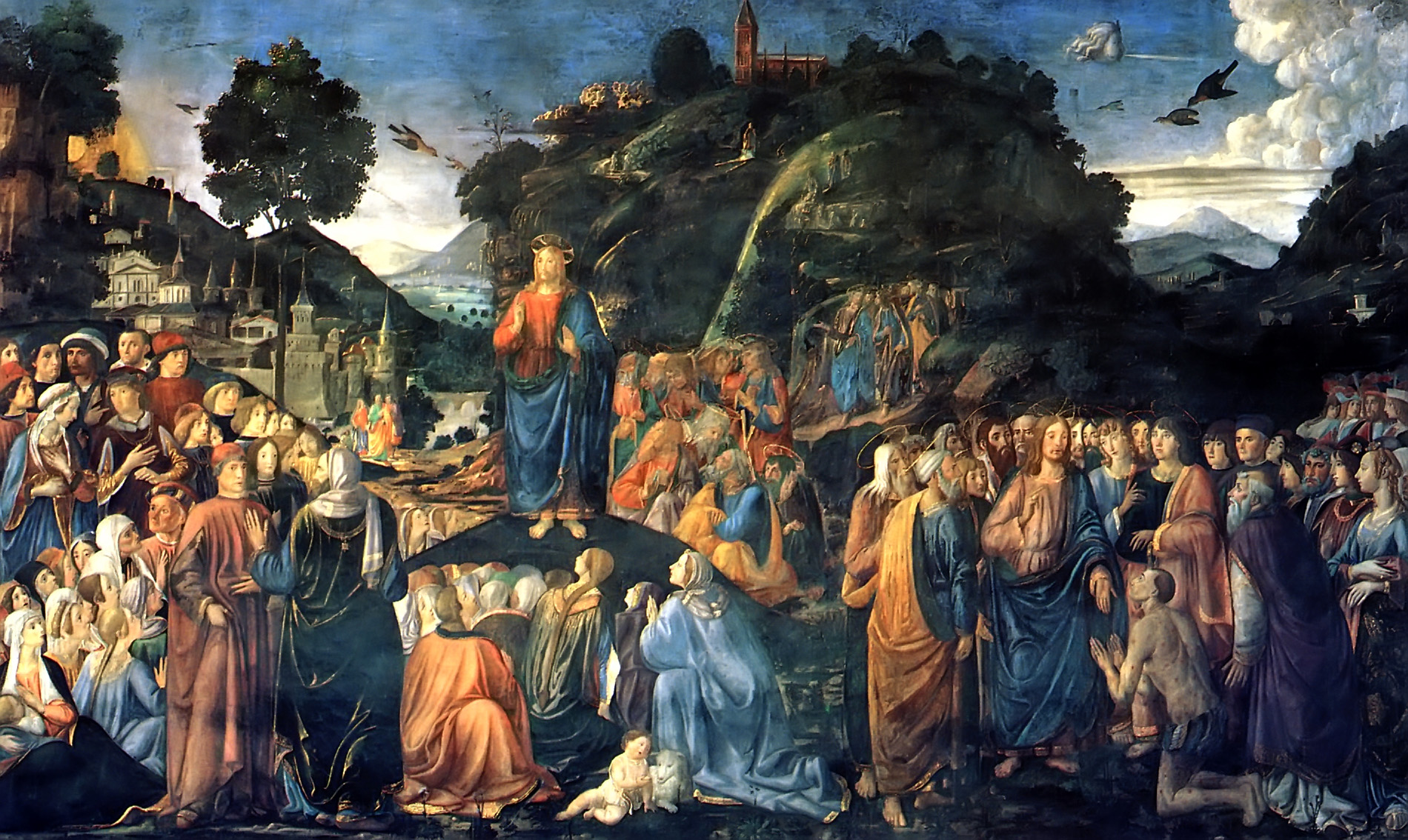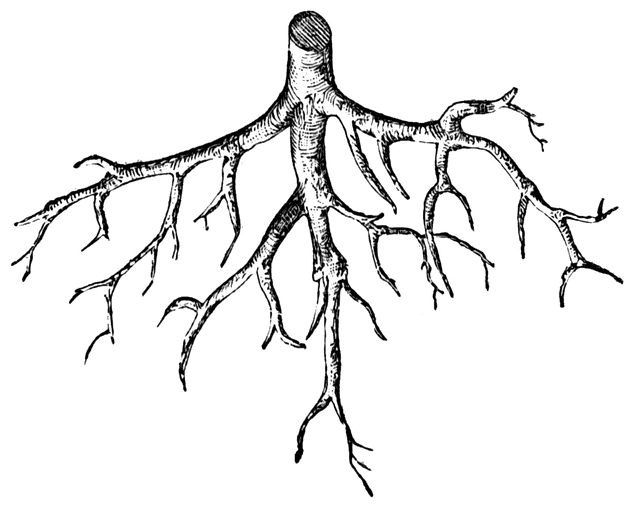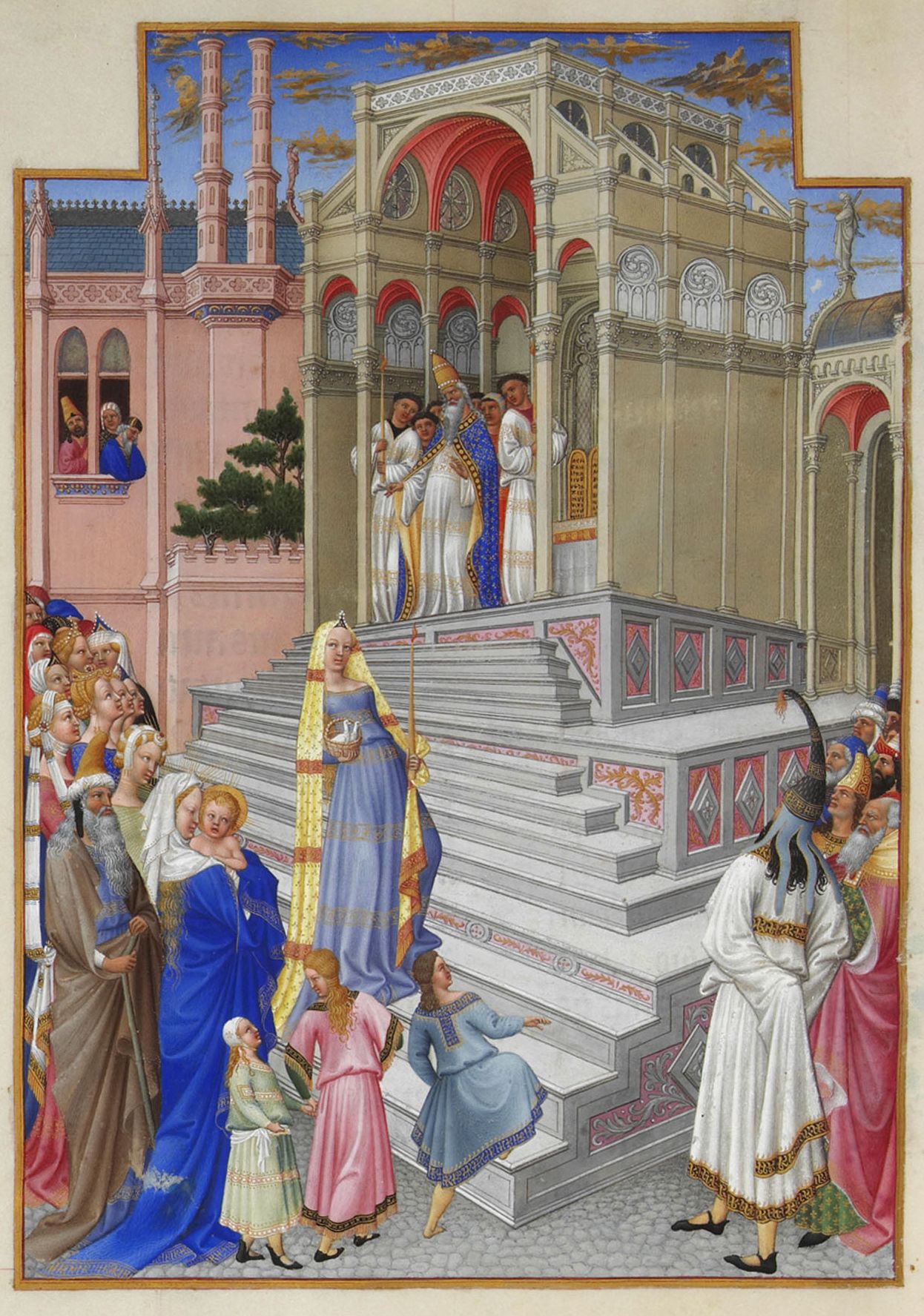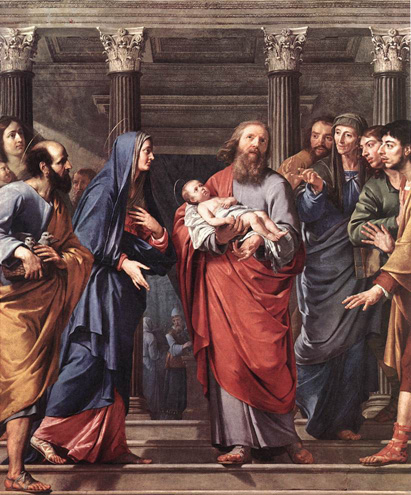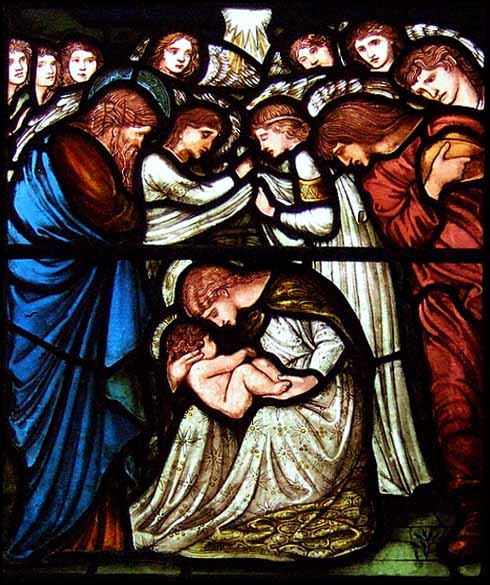Preached on Sunday, May 4, 2014 at the Church of the Holy Trinity on Manhattan's Upper East Side. The Scripture readings this sermon is based on can be found by clicking here.
Philosophers, sociologists, psychologists
and theologians have talked about and written about, and sometimes even
experienced, events which they have described as ‘numinous.’ The numinous. The
etymology of the word itself is interesting and gives us a clue to its
meaning... Its Latin root numen, is taken
from the verb nuere,
which means to nod. In Greco-Roman times, a devotee would seek the guidance of
a god by offering a prayer or incantation at the shrine of that god, and
waiting to see if perhaps the statue of the god might be seen or suspected to
nod as an indication of the path to take.
We’ve come to use the term numinous to
mean an encounter with the divine, or
the supernatural. The American psychologist William James, author of Varieties of Religious Experience, referred to the numinous as “a sense of reality, a feeling of objective presence, a perception of … something there.” The Swiss psychiatrist and psychotherapist Carl Jung described numinous experiences as inexpressible, mysterious, sometimes terrifying -- and always pertaining, in some way, to the divine. Jung believed that our main task in this life was to discover and fulfill our individual potential. This individuation as he called it, is what lies at the mystical heart of all religions. The task of life, according to Jung, is to meet the self and thereby to meet the Divine.
the supernatural. The American psychologist William James, author of Varieties of Religious Experience, referred to the numinous as “a sense of reality, a feeling of objective presence, a perception of … something there.” The Swiss psychiatrist and psychotherapist Carl Jung described numinous experiences as inexpressible, mysterious, sometimes terrifying -- and always pertaining, in some way, to the divine. Jung believed that our main task in this life was to discover and fulfill our individual potential. This individuation as he called it, is what lies at the mystical heart of all religions. The task of life, according to Jung, is to meet the self and thereby to meet the Divine.
You can find an account of a numinous
experience in the Southern writer Flannery O’Connor’s short story Revelation. In it, an arrogant,
judgmental, faultfinding woman named Ruby Turpin, has a vision, a numinous
experience that is one of those that proves quite unsettling. After a day during
which Ruby finds lots of confirmation that she and her class are so much more superior
to the unwashed and uneducated poor of her town, which encompasses all the
black folk, of course, and the white trash, as she calls them, Ruby gets her
comeuppance. At sunset she witnesses a vision in which all those she absolutely
despises and knows herself to be far superior to -- the poor, the simple folk, all
black folks -- are being led gloriously into heaven across a crimson highway
through a lavender light. And at the very last of this parade of the saints she
sees her peers, in last place, and stripped of what they consider to be their
virtues; on an equal plain with, even behind, all the unwashed humanity she
detests. Ruby’s rather vacuous virtues -- race, class, social prowess, proper
behavior -- are not reckoned to her as righteousness as she supposes, but in
fact they are worthless in the face of God’s freely offered, freely given
salvation.
+++++++++++++
Our gospel reading this week contains
another account of a numinous experience. Two people, called ‘disciples’ by the
evangelist Luke, are journeying from Jerusalem after the astonishing few days
of the Passover that they’ve just experienced. A fellow traveler joins them,
and asks them what they are discussing. They give an almost perfect précis of
the highlights of the passion, crucifixion and resurrection of Jesus. And then
they share their disappointment. They had hoped that this Jesus would be the
one to redeem Israel. Then their fellow traveler challenges them, and recounts
for them how, all that they have been told about their God has led to this very
outcome. That, in fact, beginning with Moses, the words of Scripture and
prophesy can be interpreted in such a way as to lead to just this result: not a
great king, but a suffering, seemingly vanquished servant is, in fact, the
messiah.
Then as the traveler is about to continue
on his journey, the two disciples invite him to tarry a while with them -- and to
share a meal. This strange and challenging traveler is invited in. Then as one
does at table, the traveler takes bread, blesses and breaks it. Nothing special
here; much as you do at the beginning of a meal. But this simple act proves
both reminiscent and prescient. Because in that moment, that numinous moment,
they experience the divine. It is Jesus that is with them, in the breaking of
the bread, and since the beginning of their journey.
And notice; they come to this unutterably
mysterious and joyous moment, only after having traveled the road, taken the
journey to a place called Emmaus. They have been through an ordeal in Jerusalem.
They have hoped and then lost that hope. Yet in the face of disappointment and
loss, they remained open, open to a presence of a fellow traveler, welcoming to
such a one, inviting him in to partake of a bit of simple roadside hospitality.
Though let down, perhaps even heartbroken, yet still open to the possibilities
inherent in every journey, any journey, the numinous breaks in upon them. And
they come face to face with the glory of God in the resurrection of Jesus
Christ. In an instant, they find they are in the presence of none other than the
living God.
And that is why, week after week, Sunday
after Sunday, we revisit Emmaus. We join around this table just as they did.
And we break the break just as they did. And we put ourselves in the presence
of the living God, once again. Because here, God is present in our coming
together and breaking bread.
Now not every Eucharist will prove to be
as numinous as that supper at Emmaus. But the potential for that kind of
experience is ever present, always possible; in this sacred rite, and, I
believe, in every walk of life. The numinous experience of the living God is
imminent in all of creation. Putting ourselves in the right place, in the right
frame of mind, to avail ourselves of, to really welcome, the numinous experience
of the living God is… well it takes work. Learning to set aside the really
vacuous virtues that we, like Ruby Turpin, can be so proud of. The cultivation
of a willingness to continue on our journeys after disappointment, even
despair. The spiritual maturity to allow that the messiah we thought we were
promised is not quite the messiah we are given. All these learnings and
growings are part of what ready us to experience the numinous. The willingness
to be wounded, to take the risks that will in some cases lead to hurt. It takes
some of that too.
So, start out on the road to Emmaus.
Begin your journey. Welcome those whom God might send to travel with you. Share
your dreams and your disappointments with those who journey alongside you.
Listen to what they might say, to how they might interpret your shared
experiences. Listen to what they have to say about what you think you might
already know. Be hospitable on the way. Give and accept the gift of time with
one another, the gift of being in one another’s presence; for such presences
are really the most valuable things we have to share with one another.
And when
it’s time to refresh and renew yourselves, break bread together. Share a meal, a
glass of wine, a celebration, some pizza and beer and birthday cake after a
long day of MayFair, for instance. And see what happens. And don’t be surprised
if in the most mundane of moments, in the simplest act of sharing, the
numinous, mysterious, surprising, fleeting, frightening, shattering presence of
the living God doesn’t find you, doesn’t break into your life, and change it
forever. +Amen.
© The Rev. Mark R. Collins


